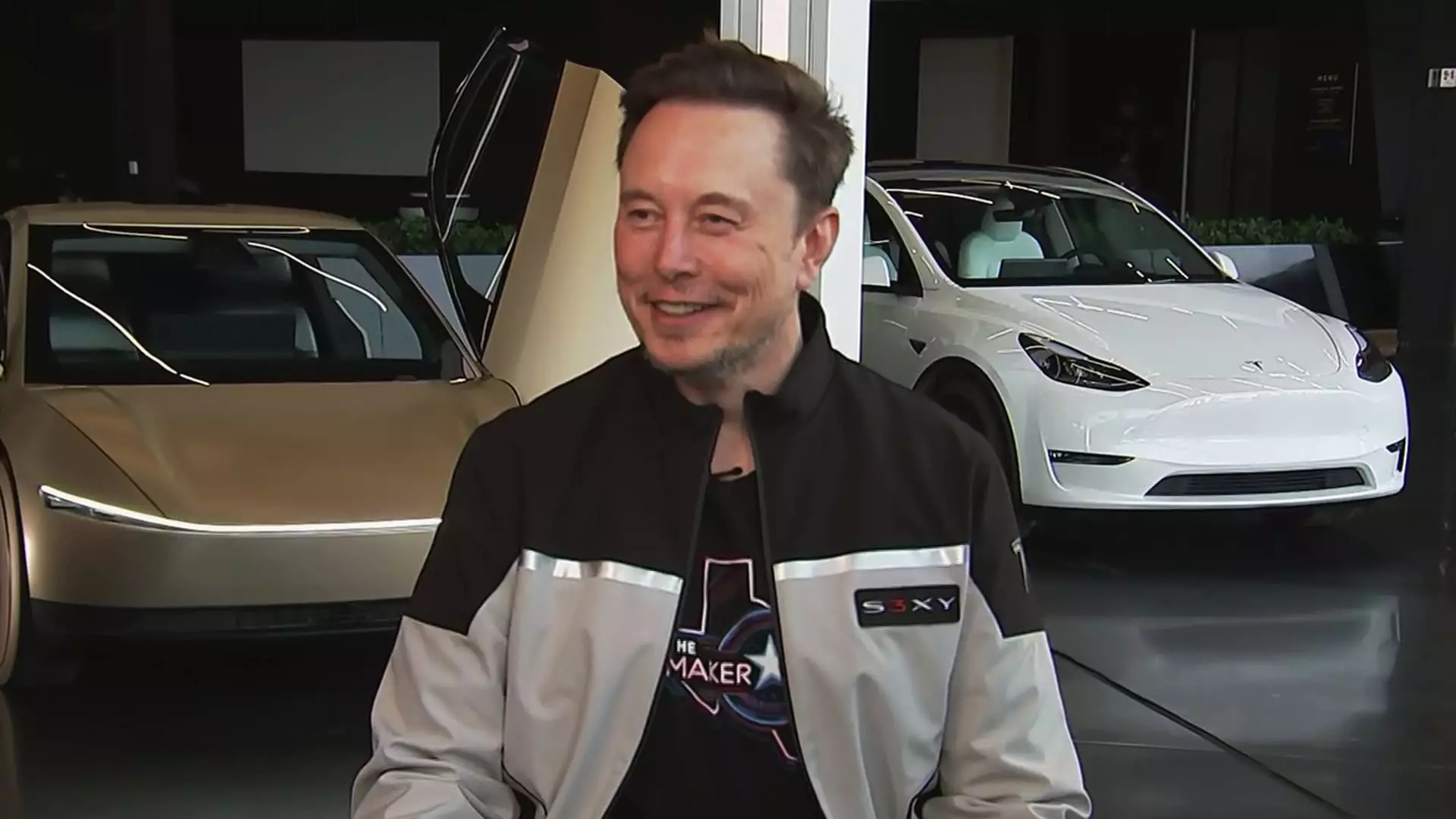Elon Musk, the enigmatic entrepreneur whose ambitions often blur the lines between innovative genius and hubristic folly, recently threw light on an ambitious strategy involving Tesla and his artificial intelligence company, xAI. In a revelation that sparked intense conversation among tech enthusiasts and environmental advocates alike, Musk announced future plans for massive GPU installations to bolster AI capabilities in Memphis, Tennessee. While some may herald this as a hallmark of progress, the reality of such endeavors carries a heavier burden that isn’t being adequately addressed by its proponents.
Musk’s indication that Tesla’s batteries and xAI’s burgeoning data capabilities depend heavily on semiconductors from established giants like Nvidia and AMD reflects a broader truth about the technological landscape: reliance on a few key players is stifling. The notion that GPUs are the primary limitation to AI’s potential is not just simplistic; it is also dangerous. It cultivates a mindset that prioritizes rapid expansion over sustainability, sidestepping critical conversations about resource allocation in a world already on the brink of ecological disaster.
Imperiled Communities: The Real Cost of Progress
Musk’s declaration that xAI’s facility is the “most powerful training cluster in the world” overshadows another narrative—the environmental repercussions of such colossal operations. Local communities have voiced legitimate concerns over the power-hungry systems powered by natural gas, which are notorious for releasing nitrogen oxides contributing to respiratory diseases and air quality degradation. These complaints resonate loudly in a climate crisis era, further complicating the aspiration for a technological utopia.
The decision to situate xAI’s massive GPU installations in regions like Memphis is touted by officials as transformative; however, accolades disregarding community health are disturbingly misplaced. In a world where environmental justice is paramount, the implications of prioritizing technological stakes over local welfare cast a shadow on this acclaimed technological renaissance. What price are we willing to pay for advancement, and why are the voices of affected communities sidelined in Musk’s narrative?
Questioning Authority: A Cultural Discrepancy
In a recent dialogue with CNBC’s David Faber, Musk touched upon the cultural dichotomy between the U.S. and China concerning innovation and authority. He argued that the U.S. retains an edge in groundbreaking ideas largely due to a willingness to “question authority.” Yet the irony is palpable. When one considers Musk’s relentless drive that often pushes the envelope without sufficient regard for ethical considerations or environmental impact, it begs the question: Is he himself as susceptible to the intoxicating allure of authority as those he critiques?
Navigating issues of power and innovation necessitates a careful balancing act. It’s vital to scrutinize not only the sources of innovation but also the ethics of its application. Musk’s understanding of authority seems selective; he challenges the status quo when it suits his vision yet operates formidable corporate structures that demand compliance from stakeholders and communities. Can one truly innovate without simultaneously engaging with, or even uplifting, the interests of those adversely affected by such advancements?
Green Resources vs. Technology’s Hunger
As Musk forecasts an impending shortage of electricity generation mid-2026 due to increasing demands from AI, one must ponder the sustainability of this trajectory. While he praises China for its investments in power generation, he seems oblivious to the irony that unchecked technological expansion often outpaces the development of renewable resources. As we strive towards amazing technological feats, the disconnect between what’s being achieved and the associated environmental costs cannot be overlooked. Sustainability should no longer be an afterthought; it must be woven into the very fabric of innovation strategies.
To advocate for technologies like xAI’s GPUs is to embrace a vision of the future that, without accountability, may lead to environmental dystopia instead of the promised digital renaissance. Are we alright with multiplying emissions in the name of progress, or should a new paradigm of eco-conscious innovation take precedence? Finding a middle ground may require more than just promising predictions; it demands a critical reckoning with the responses communities deserve. The clock is ticking, and our collective responsibility remains glaringly pronounced.

